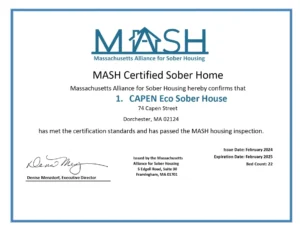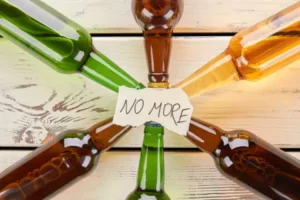
If drinking causes a blackout, you may not even remember being aggressive unless someone reminds you about it. By perpetuating such behavior, people can end up damaging meaningful relationships — yet another effect of alcohol-based aggression. Becoming angry or irritable when you drink is a relatively common experience — an often-cited body of research by the World Health Organization notes that aggression has a closer link to alcohol than any other kind of psychoactive drug. If your behavior fits the description of an angry drunk, it may be difficult to admit you behaved that way under the influence. Many people whose behavior changes drastically with drinking have a hard time believing it when they’re sober.
- Prior reports have established alcohol-induced aggression among males (Lipsey et al., 1997), which appears to vary across the ethnic groups and geographical regions (Caetano et al., 2001).
- If you have a natural tendency to be angry, drinking alcohol may cause you to become aggressive.
- I3 Theory (“I-Cubed”) is a multifactorial meta-theory that predicts myriad behaviors, including aggression [••7, 8].
Individualized, evidence based treatment, to fit your needs.

Many people enjoy alcoholic drinks as a way of relaxing, sometimes to reduce the tension of socializing or to quiet an overactive mind. By contrast, some individuals’ alcohol alcoholism and anger consumption contributes to their anger, hostility, and even aggression. In his case, he was already predisposed to anger arousal before he had his first drink.

Alcohol, Aggression, and Violence: A Conundrum

Specifically, they exhibited a reduced capacity to detect sadness and fear and a reduced tendency towards seeing happiness. While the study did not support a significant difference between groups high and low in anger, these results support the notion that such impairment in facial recognition may contribute to aggressive responding. Alcohol use disorder (AUD) is one of the leading causes of the global burden of disease and injury (WHO), despite the https://ecosoberhouse.com/ continuous discovery of novel pharmacotherapeutic agents (Pakri Mohamed et al., 2018). Various factors such as environmental, social, situational, and cultural context have distinctive consequences toward substance use and its effects on individuals (Latkin et al., 2017). Violence related to substance use has been widely reported and studied, particularly the potential for violent outcomes between the different substances of use (Duke et al., 2018).
Alcohol and Domestic Violence
We’ve heard of the “raging alcoholic” or “angry drunk” stereotype, but is there any truth to the idea? However, these drugs have pros and cons, so these should only be used after consulting a professional. Confidant Health provides online access to licensed professionals who can help you cope with alcohol dependence and related aggression. FDA (Food and Drug Administration) has approved the following drugs to cope with alcohol dependence. The management for a person who is addicted and has anger issues includes the following ways.
Anger Management and Alcohol Addiction
They were also required to respond to the Consideration of Future Consequence Scale (CFC). It was found that those scoring lower became significantly more aggressive than those who had higher ratings on the CFC. The findings were explained by emphasizing that concern for the future involves greater prefrontal cortex resources that help inhibit the excessive impact of alcohol. Mental rigidity and alcohol consumption have been explored as contributing to domestic violence. One such study included 136 men with a history of intimate partner violence (IPV) (Estruch, 2017).
- Aside from existing anger issues, people can turn into aggressors when drinking for several reasons.
- On that final note, in particular, one of the more profound ways in which alcohol can contribute to aggression is by altering an individual’s perception of reality.
- A healthy amount of serotonin means our reactions to perceived threats will likely be logical – like our tension when a car cuts us off on the freeway.
Social factors of alcohol and rage

The Relationship Between Anger and Aggression
